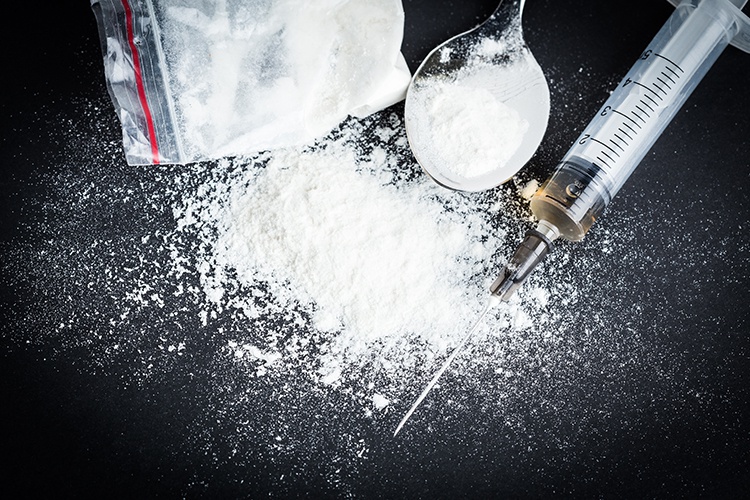Are you or a loved one seeking heroin rehab? Tired of heroin cravings, poor mental health, and the unpleasant symptoms associated with using an addictive drug? 1000 Islands Addiction Treatment Centre offers an accredited heroin addiction treatment program in Mallorytown, Ontario, serving clients in Toronto, Ottawa, Quebec, and across the U.S. border.
Heroin Withdrawal Treatment at 1000 Islands
Heroin is a highly addictive illegal street drug derived from the opium poppy. Ironically, it was initially marketed as a treatment for morphine addiction, but it didn’t take long for doctors and pharmacists to understand just how addictive it is. Although heroin is illegal today, many people still turn to it when they no longer have access to prescription opioid medications.
Whether it is smoked, snorted or injected, the effects of heroin can be felt very quickly: within moments, the user feels a rush of euphoria. Unfortunately, this fades quickly, leaving the user feeling sick and anxious, and wanting to find more heroin just to escape the withdrawal symptoms. Like many other substances, heroin needs to be taken in increasing doses in order to achieve the same effects. This results in far-reaching consequences to physical and mental health.
CALL OUR TOLL-FREE HELPLINE NOW AT 1-855-929-4045 or SEND US A MESSAGE
The Physical And Mental Effects Of Heroin Addiction
Heroin produces a sense of happiness and well-being, which is quickly followed by a sense of everything around you slowing down. This can be accompanied by some uncomfortable side effects, including:
- Depression, anxiety and erratic mood swings
- Paranoia, delusions and hallucinations
- Confusion and disorientation
- Dry mouth and shortness of breath
- Extreme itchiness
- Warm, flushed skin
- Loss of appetite
People who use heroin regularly over a period of time can suffer some long-term effects, including:
- Blood clots resulting in an increased risk of cardiac arrest, embolism or stroke
- Liver disease, kidney failure and various infections
- Respiratory problems including pneumonia
- Seizures
- Intravenous users are at increased risk of contracting HIV and hepatitis
- Intravenous users may contract skin infections or abscesses, and they may suffer from collapsed veins
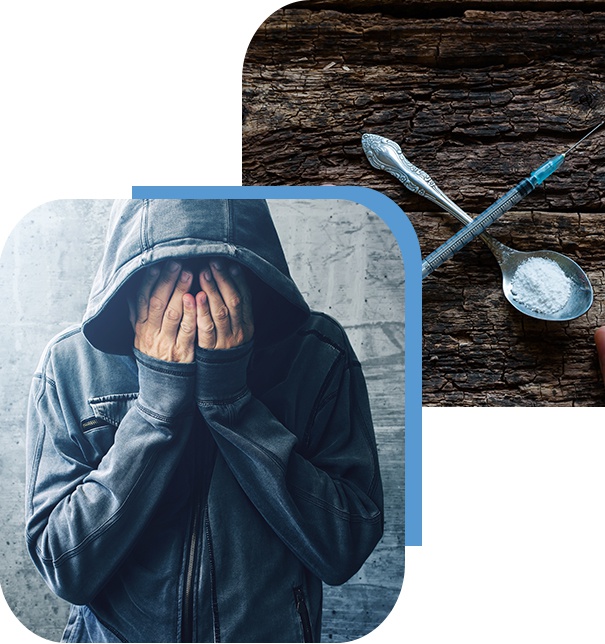
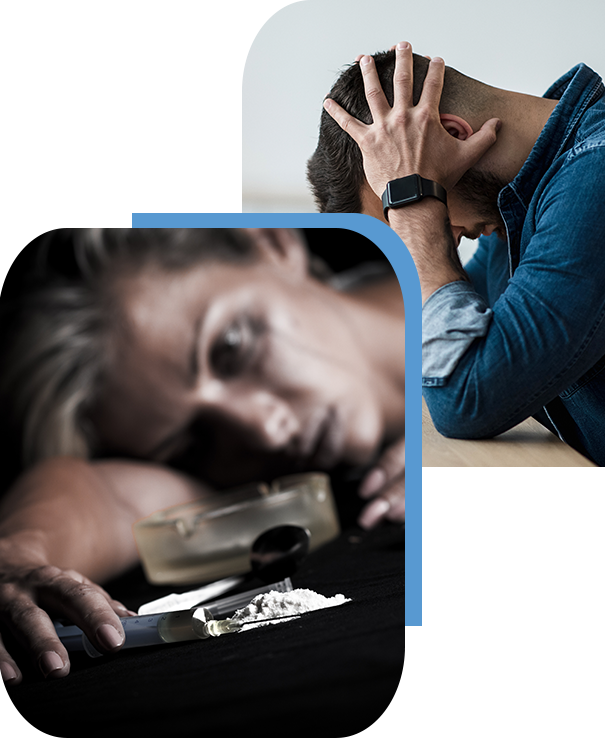
Risk Of Heroin Overdose
As heroin users become increasingly dependent on the drug, they have to keep increasing the doses in order to accomplish the same effects that appealed to them in the first place. As the dosage increases, so does the risk of accidental overdose. A heroin overdose can be extremely dangerous – in some cases, it is fatal. The tell-tale signs of a heroin overdose include:
- Blue-tinted lips
- A weak pulse
- Discolouration of the tongue
- Shallow breathing
- A dry mouth
- Pinprick pupils
Anyone displaying these symptoms should be taken to the nearest emergency room. If the individual is known or suspected to have been using heroin, it is important to relay this information to the attending medical professional.
How Can I Avoid A Heroin Overdose?
While it is easy to say that you should simply not use heroin, this is not practical advice for someone who has a heroin addiction. Knowing how easy it is to accidentally overdose on heroin, there are few things you can do to reduce harm to yourself:
- Avoid using heroin while you are by yourself. Ensure that there is someone nearby to call for help if needed.
- If you are using heroin intravenously, make use of a safe injection site. Never use a needle that you are not absolutely sure has never been used by someone else.
- Consider smoking or snorting, both of which are less dangerous methods of ingesting heroin
What Should I Do If I Think A Loved One Is Using Heroin?
Facing up to the possibility of a loved one’s addiction can be difficult, but taking action could save their life. Some indicators of frequent heroin use in a loved one are:
- Track marks on the arms or legs, or an insistence on wearing long sleeves during warm weather
- Lack of care for personal hygiene and grooming
- Confusion and disorientation
- Aggression and violent behaviour
- Impaired speech
- Periods of high energy alternating with periods of lethargy
If a friend or family member is showing these signs and you do not know how to approach them about their problem, give us a call and ask about our intervention services. We can send an addiction counselor who will gently guide your loved one towards making the decision to heal.
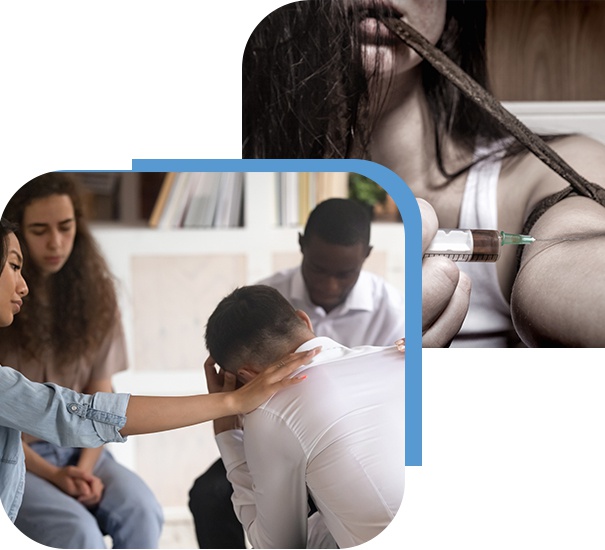

Heroin Withdrawal Process
Withdrawal from any substance happens when you become so dependent on a substance that your body goes into revolt when the that substance is denied. It is the body’s way of trying to tell you that it needs the substance in order to survive. The resulting withdrawal symptoms can be overwhelmingly uncomfortable, and they can be fatal.
This is why we do not insist that incoming clients are “clean” prior to their arrival. The first phase of our treatment program is medical detox: this provides you with a safe place to be while the heroin is leaving your system. You are supervised by doctors to ensure your safety and minimize your discomfort, and so that withdrawal symptoms can be treated as they arise. Heroin withdrawal symptoms include the following:
- Muscle aches and a sense of the body feeling heavy
- Nausea and vomiting
- Excess sweating regardless of whether it is hot or cold
- Diarrhea
- Fever
- A runny nose
How To Get Heroin Addiction Treatment
Starting the recovery process is as quick and easy as making a phone call to us. We offer comprehensive inpatient heroin addiction treatment and rehab that follows a holistic approach. When we see you, we do not only see the addiction. We see a human being who is in pain – a human being with goals and potential, who deserves the opportunity to heal and start a new phase of life.
No two people are the same, so no two treatment plans are the same. You will receive your own customized plan that uses a variety of treatment modalities, including group, family and individual therapy, yoga and meditation, life coaching, nutrition and exercise coaching, art and music therapy, and more. You will be in a safe, caring environment set in one of the most beautiful parts of Ontario.
Give us a call today to get started. We look forward to being part of your journey to recovery.
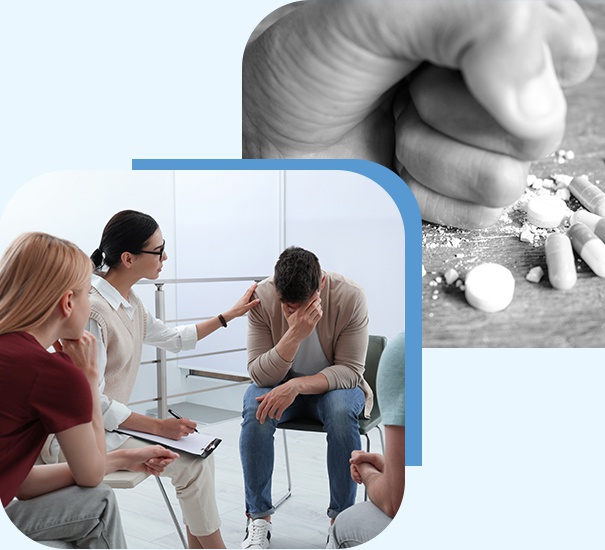
Frequently Asked Questions
What is heroin rehabilitation treatment in Ontario?
Heroin addiction treatment rehab, also referred to as inpatient treatment, involves staying at a rehabilitation centre for a stay of at least 42 days under complete medical supervision. During their stay, clients participate in both individual and group therapy and counselling, where they can develop a better understanding of opioid use disorder and learn new and healthy ways to cope with stresses and triggers through behavioural therapies.
How can I find a reputable heroin rehabilitation centre in Ontario?
The Commission on Accreditation of Rehabilitation Facilities (CARF) is an independent non-profit organization that certifies rehab centres on an ongoing basis, ensuring elevated standards are met for care, quality and service. Their accreditation empowers clients to make informed decisions about finding trusted residential treatment.
What types of treatments are offered in Ontario for heroin addiction?
There is no one size fits all to heroin addiction treatment and other opioid use disorders. As such there are a few options to help clients find the best approach to overcome opioid dependence.
Inpatient treatment for heroin addiction, such as that offered at 1000 Islands, includes an extended stay at a rehab facility, away from regular routines and responsibilities.
Inpatient services can also include detoxification for heroin withdrawal, helping clients overcome acute withdrawal symptoms safely and effectively before treatment begins. It is important that the physical symptoms of the drug addiction are overcome during heroin detox before one can receive effective heroin treatment.
Outpatient treatment does not involve staying overnight, and offers clients more flexibility to maintain work and other responsibilities. Some clients require less demanding treatment schedules, while others require a stricter regimen in order to stay the course of addiction treatment.
In both cases, it is important to treat heroin addiction by addressing any mental health issues that are also contributing to the substance use disorder.
Often times medication assisted treatment is utilized, as certain therapeutic medications block opioid receptors in the brain, effectively reducing cravings and withdrawal symptoms.
How long does a typical heroin rehabilitation program last in Ontario?
Our addiction treatment programs last a minimum of 42 days.

